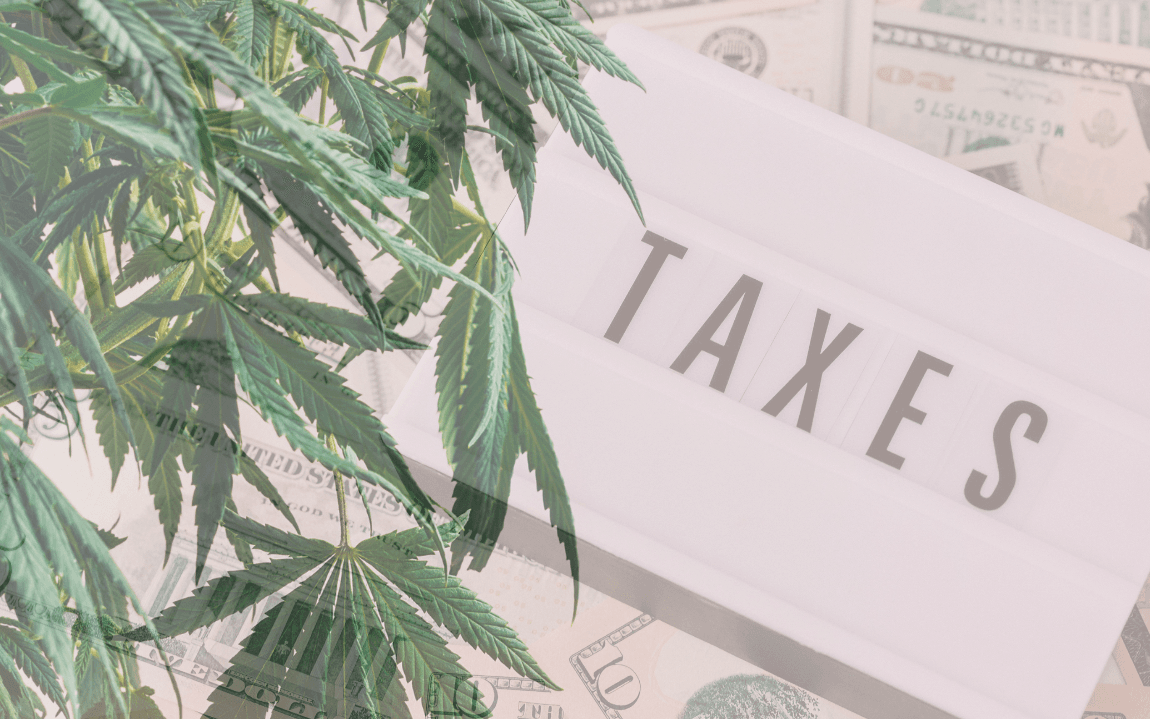Author: Patrick Finnegan, Cannabis CPA
On January 1, 2023, cannabis retailers will be responsible for collecting and paying the cannabis excise tax to the California Department of Tax and Fee Administration (CDTFA).
California is making major changes to the way cannabis excise taxes are applied and collected beginning January 1, 2023, and these changes will greatly affect the retail cannabis industry.
One major change is the transition of Cannabis Excise Tax reporting from the distributor to the retailer, who is required to register for a cannabis excise tax account. Beginning January 1, 2023, retailers are responsible for billing and collecting the Cannabis Excise Tax on the following categories:
The cannabis excise tax remains at 15 percent and is based on gross receipts from the retail sale of cannabis or cannabis products.
- Gross receipts include the sales price of the cannabis or cannabis products, after discounts, and all charges related to the sale, such as delivery fees and any local cannabis business tax listed separately on the invoice or receipt provided to the purchaser.
- Gross receipts do not include sales tax or the gross receipts from the retail sale of any non-cannabis item.

*Calculated with a 5% local tax and 10% sales tax rate. Percentages vary by location.
Cannabis Distributors were informed by CDTFA that their final cannabis tax return is due January 31, 2023. However, CDTFA also informed retailers that any amount of cannabis excise tax due to a distributor for purchases made prior to January 1, 2023, must be paid to the distributor no later than April 1, 2023. There is a disconnect between the due date of the return and collection date; I am sure distributors will be scrambling to collect unpaid excise taxes from some retail customers.
Another change is the allowance of a tax credit for excise tax paid on inventory purchased prior to January 2023. This tax credit will be available to the retailer during their first quarter excise tax return and will lessen the excise tax that would normally be due.
Retailers should run an inventory report on December 31, 2022, detailing the amount of inventory with excise tax included in the purchase price. That excise tax amount will then be claimed as a credit against the retailers excise tax collections after January 1, 2023. Be sure to keep all the backup associated with the pre-paid excise tax credit in case of any future audit review as the CDTFA will be records for support.
California cannabis consumers are subject to crazy levels of taxation that hinder the legal market’s ability to compete.
Other upcoming changes to be aware of:
The recent tax law changes include the addition of personal tax responsibility for any unpaid excise tax. The State of California may hold individuals personally responsible for payment of the excise and sales taxes, which could include levies on bank accounts or personal property. State and Local taxes collected by cannabis retailers can reach 35% of the retail sales price when local, state excise and sales tax are included. I highly recommend that the retailer establish separate bank accounts where taxes are deposited and not co-mingled with other entity funds.
One other interesting component being formulated with the tax change is the allowance of up to 20% of the excise tax as a credit back to the retailer if they are previously approved for a license fee waiver from the Department of Cannabis Control. This should assist equity retail business in establishing a source of much needed income. Information on how to apply for this vendor reimbursement credit will be provided within a special notice issued by the CDTFA in December 2022.
And finally, for those cannabis businesses that experienced inventory thefts of excise tax paid inventory prior to January 1, 2023, the State of California allows a tax credit of the excise tax paid since the cannabis was never sold at retail. However, you must work with the distributor that sold you the inventory and since their last excise tax return is due on January 31, 2023, you need to file a refund claim with the distributor as soon as possible.
California cannabis consumers are subject to crazy levels of taxation that hinder the legal market’s ability to compete. It’s always something in cannabis, and I feel for each of you that pay taxes instead of paying yourself or investing further in your business. If you have any questions on these or other tax matters, I am always available by phone or email:
Patrick Finnegan CPA
- patrickfinnegancpa@gmail.com
- 916-718-1068
Additional Resources:
Meadow makes it easy to see what excise has already been paid and what's left to remit. Explore upgrading to Meadow to ensure you remain compliant and supported through these shifting regulations.


